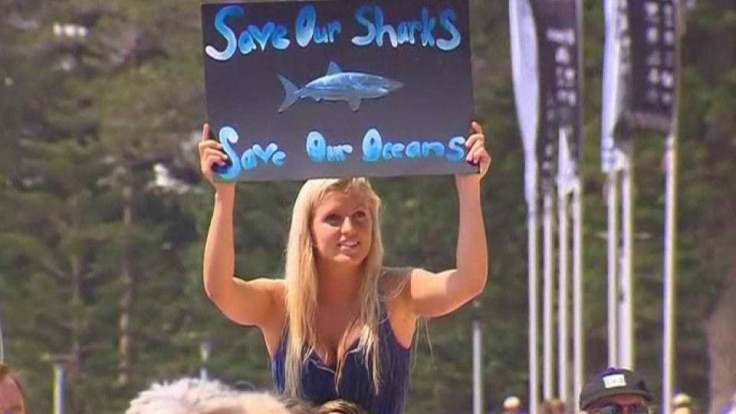Western Australia's Shark Cull Trial Ends, Premier Colin Barnett Called It a 'Success'

Western Australia's shark cull trial has ended with the removal of drum lines surrounding the waters of the state. Marine groups waiting for the removal of drumlines said the controversial policy must not be implemented again.
The staff from the Fisheries Department checked the drumlines before pulling them out, beginning at Ocean Reef. In Perth, there were 30 baited drum lines set-up in five beaches. According to reports, an official report of the total number and the type of sharks caught will be released by next week.
During the first three weeks of the shark cull, 66 sharks were caught on the baited drum lines. Most of them were tiger sharks. There were no great white sharks caught during the trial run of Western Australia's shark cull.
Western Australia's catch-and-kill policy targeted great white sharks, but bull sharks and tiger sharks longer than three metres were the ones caught in the drumlines.
According to WA Premier Colin Barnett, the policy had been a "success" with authorities having learned more about the sharks. He said people might be horrified to know that two sharks measuring about 4.2 metres were caught off Floreat beach. The sharks were not great whites but tiger sharks which he described as "proven around the world to be a dangerous shark."
Despite the state's full support for the shark cull policy, many Australians have expressed their opposition through protests and surveys. The shark cull in Australia is the biggest campaign to slaughter marine animals in the world. However, a survey revealed that Australians are not afraid of the sharks in their beaches like the state is. Among the 583 people who came to the Sea Life Sydney Aquarium, 77 per cent replied that they were "not at all frightened" or "moderately frightened" of sharks in their oceans.
Unlike the supporters of the shark cull policy, 87 per cent of the respondents said sharks should not be killed despite posing a threat. The Sea Life Conservation Fund released the results of the survey. Their respondents' age ranged from 5 to 75 years old.
Christopher Neft, University of Sydney lecturer and shark expert, said Western Australia assumes that the public is afraid of sharks. Neft said the government "reacts emotionally" and looks for an immediate response when shark bites happen. However, this view of government refutes public perception.
Australia's Environmental Protection Agency (EPA) is still reviewing Western Australia's bid for three-year extension of the shark cull.




















